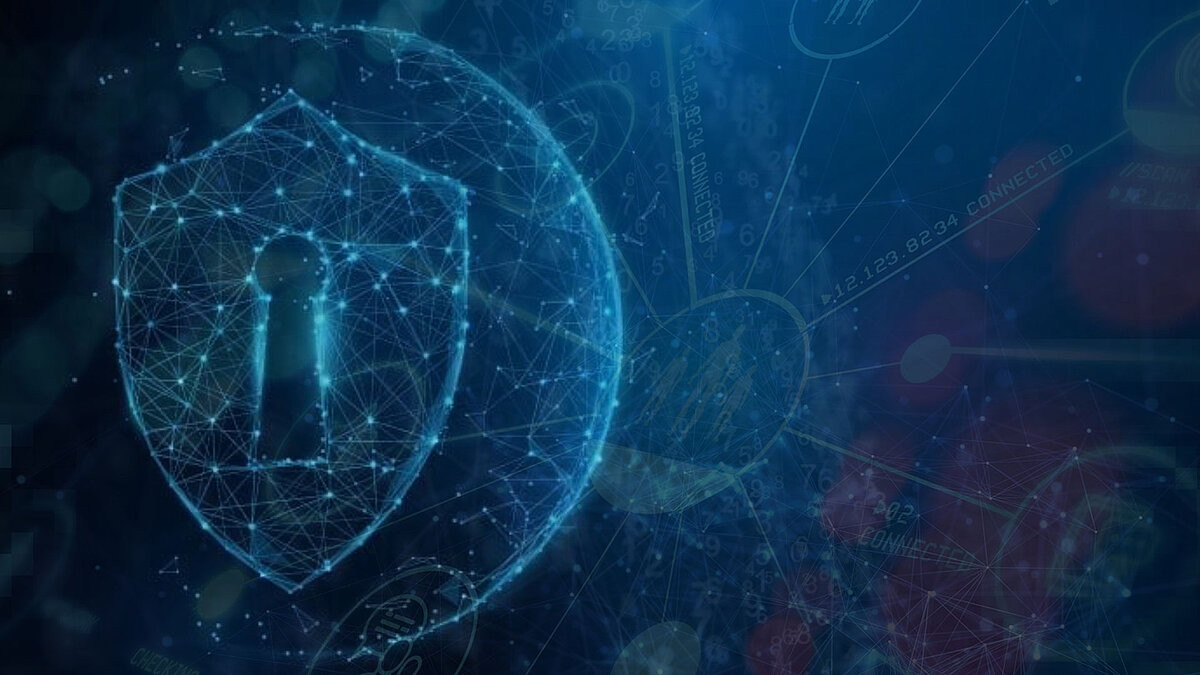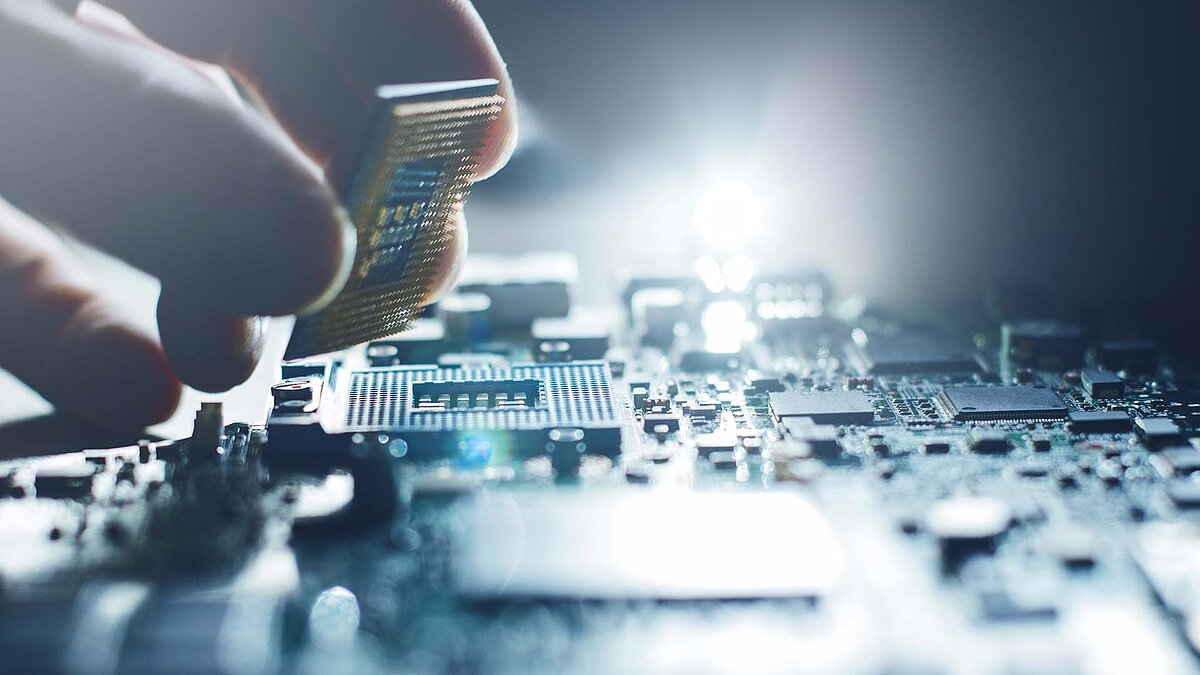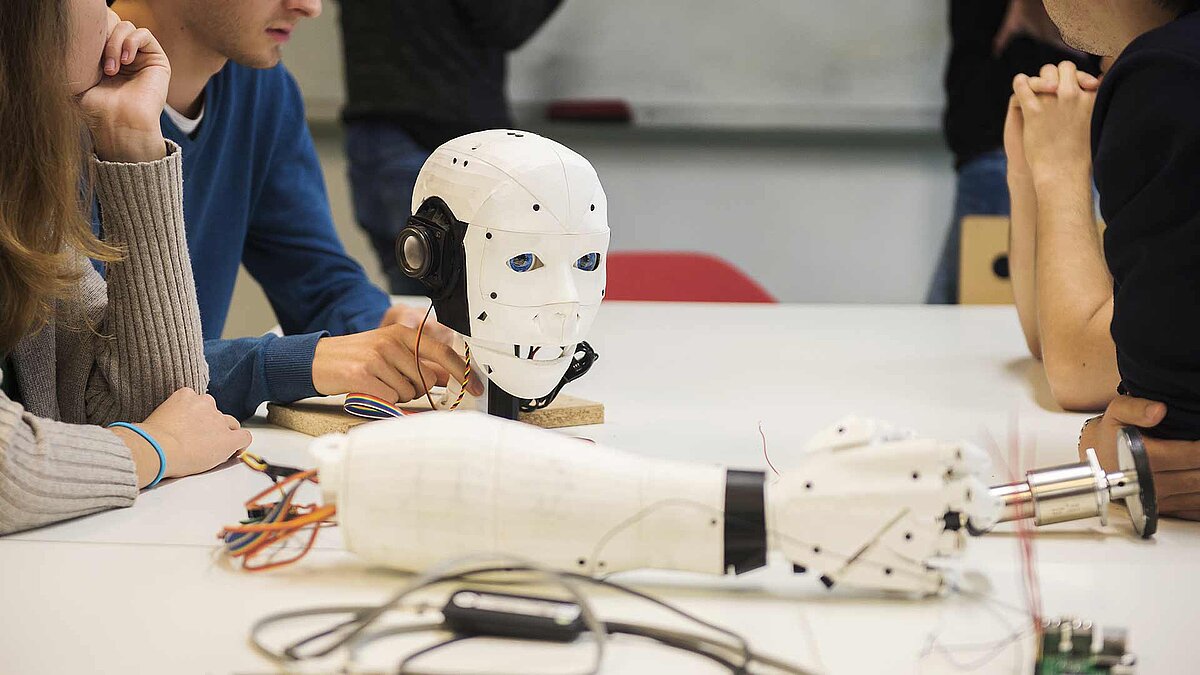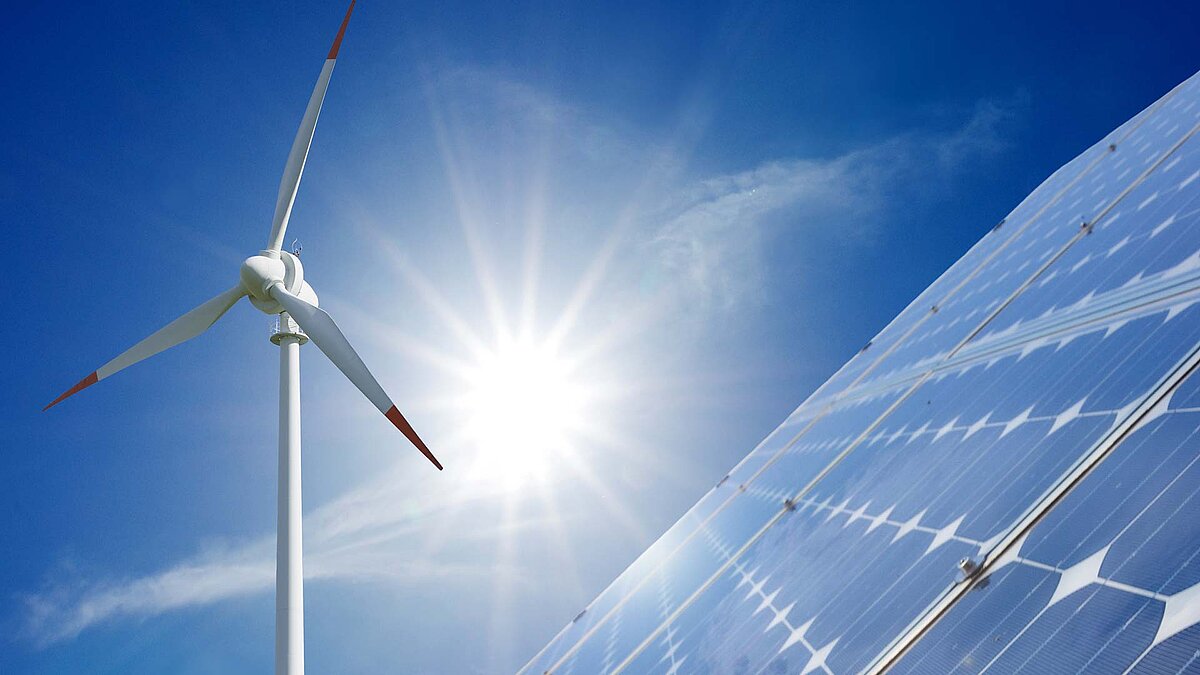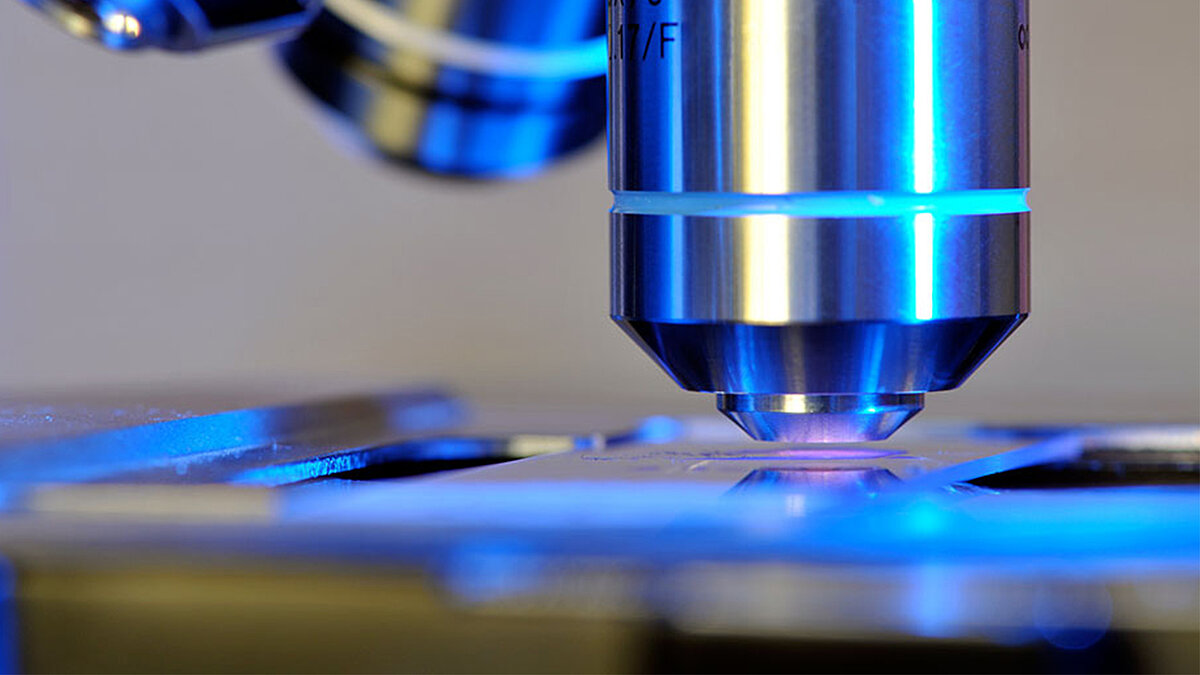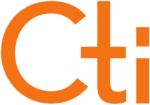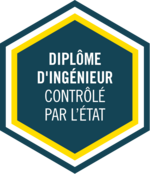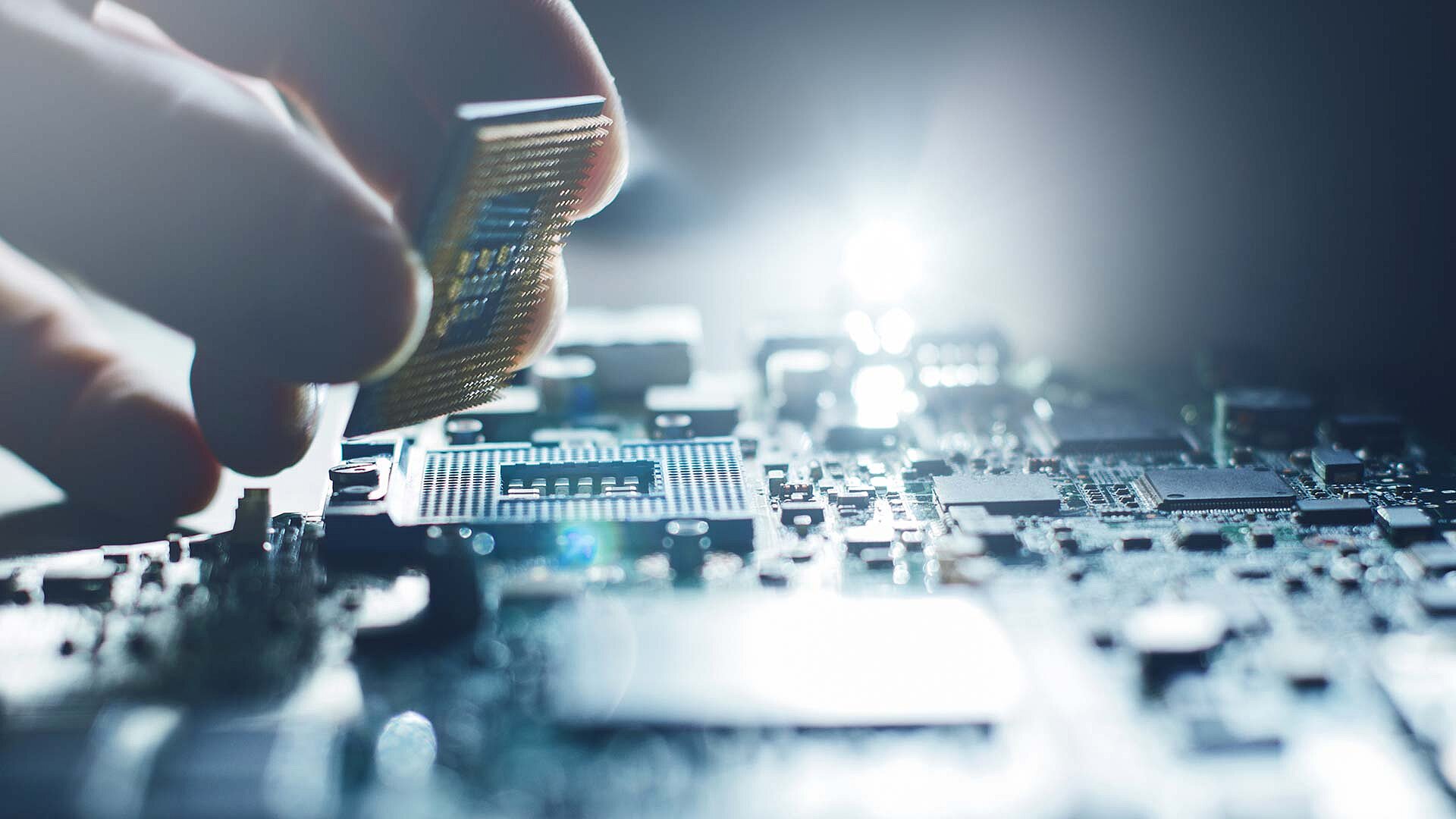
Smart electronic systems engineer programme
ESIEE Paris offers a specialization in smart electronic systems within its engineering programme during the last two years of the course, accredited by the engineering titles commission (CTI).
Degree
Engineering
Modality
Full-time
Duration
2 years
Degree level
Bac +5 master's degree
Why should I become a smart electronic systems engineer?
ESIEE Paris electronics engineers have a wide range of skills: digital processing hardware acceleration, power consumption optimization, wireless communication and, more generally, the design of customized electronic systems.
This knowledge will enable them to work in a wide range of electronics applications: automotive, finance, aeronautics, space, medical, component suppliers, etc.
Electronics is ubiquitous and plays a key role in the French economy. With reindustrialization, the need for electronics engineers is growing.
What will the programme bring me?
Objectives
- To become a multi-skilled engineer in electronics
- To learn how to conceive smart electronic systems from the choice of the components to the conception
- To follow a training that responds to tomorrow’s challenges : the internet of things, artificial intelligence, datascience, cybersecurity…
Skills
- Designing electronic systems from the schematic to the PCB realization
- Creating hardware accelerators from architecture definition to VHDL realization on FPGA targets, as well as their integration on a System-on-Chip (SoC)
- Integrating and optimizing wireless communication functions (RF, antenna design, IOT Lora networks, etc.).
- Applying this knowledge to various application domains (connected home, cryptography, space, etc.)
Professional opportunities
Examples of applications
- Autonomous vehicles
- Intelligent habitat and environment
- Secure contactless payment
- Hardware acceleration for financial markets, etc.
Professions / Positions
- PCB-based electronic systems designer
- FPGA-based SoC digital systems designer
- Microwave systems designer
- Micro-nano-technoloy sensor designer
- Research and development engineer
- Applications engineer
- Business engineer
Sectors of activity
- Defence and security
- Connected objects
- Aerospace
- Automotive
- Financial markets
- Multimedia
- Consumer electronics
- Home automation
- Medical electronics
- Smart buildings and environment
- Microelectronics
Companies that have recruited graduates from the sector:
Airbus defence and space SASElsys DesignEnyxExpleoGE Medical SystemsMBDA FranceSafranSchlumbergerSiemensTexas instruments
96 %
of the young graduates found their first job within 4 month after of graduating (promo 2023)
90 %
of our students even found a contract before the end of their training
43 400 €
is the average annual gross salary (France and International)
How is the programme structured?
At the end of the first year of the engineering cycle, students choose their field of study. The course of study is spread over two years with compulsory and optional scientific and technical courses, management courses and modern languages.
Programme
2nd year of the engineering cycle
The courses take place over two semesters, each one subdivided into two periods. The first semester consists of two teaching periods. The second semester is made up of one teaching period and an internship period of at least 12 weeks. From January to April, students must work in teams on multidisciplinary projects proposed by industrial partners, laboratories or ESIEE Paris teachers. All students may take optional modern language 2 courses.
- UE - Advanced science and technology (330 h - 27 ECTS)
- UE - Open science and technology (110 h - 10 ECTS)
- UE - Management and human sciences (120 h - 7 ECTS)
- UE - Modern languages (92 h - 6 ECTS)
- Internship (12 ECTS)
3rd year of the engineering cycle
The courses take place over in two semesters. The first semester consists of two teaching periods. In the second semester, the student must complete an end-of-studies internship of at least 24 weeks (6 months) in a company or research laboratory.
- UE - Advanced science and technology (180 h - 18 ECTS)
- UE - Open science and technology (60 h - 5 ECTS)
- UE - Management and human sciences (90 h - 5 ECTS)
- UE - Modern languages (42 h - 4 ECTS)
- Internship (30 ECTS)

